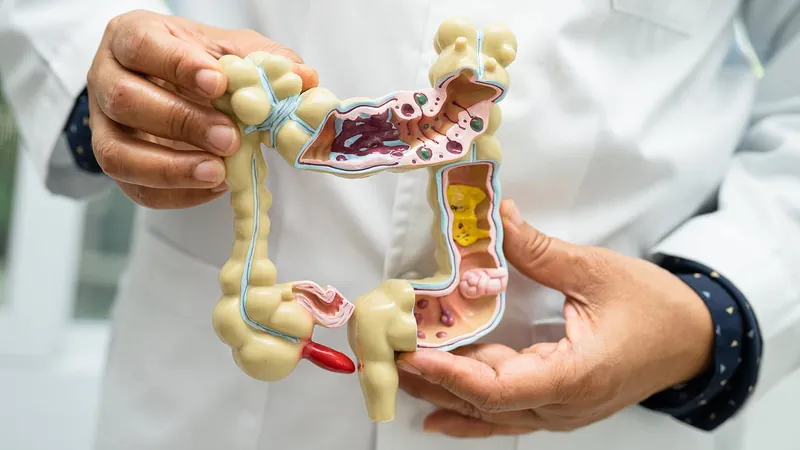
Unlocking Your Gut: The Low FODMAP Diet Revolutionizes Health and Appetite Control!
2025-08-21
Author: Chun
Introducing the Low FODMAP Miracle!
New research is shaking up the world of gut health with an exciting finding: a low FODMAP diet could be the key to regulating appetite and improving overall digestive well-being!
What Exactly is a Low FODMAP Diet?
The low FODMAP diet isn’t just another health trend; it’s a game changer, especially for those suffering from irritable bowel syndrome (IBS). By cutting down on certain carbohydrates like cereals, bread, and crackers, this diet allows your digestive system a much-needed break from irritants.
The Norwegian Breakthrough!
Researchers at Haukeland University Hospital in Norway unearthed groundbreaking insights into how this diet not only eases gut distress but also enhances blood sugar regulation and appetite control. This is fantastic news for IBS patients eager to manage their symptoms more effectively.
Decoding FODMAPs: Friend or Foe?
FODMAP stands for fermentable oligosaccharides, disaccharides, monosaccharides, and polyols, a mouthful that refers to groups of carbohydrates guilty of triggering all sorts of digestive havoc, from bloating to crippling stomach pains. These troublesome carbs can’t be fully absorbed in the small intestine, leading to their processing in the large intestine.
Best Choices for Your Gut!
What should you eat instead? Think non-fermentable vegetables like eggplant and potatoes, low-fructose fruits such as grapes, kiwis, and oranges, alongside protein-rich foods like eggs, tofu, and seafood.
Study Results That Will Make You Rethink Your Plate!
In a meticulous study involving 30 adult IBS patients, participants followed a strict low FODMAP regimen under the supervision of a dietician. Monthly check-ins revealed that adhering to this diet led to a 'significant improvement' in gastrointestinal symptoms. Participants reported less severe abdominal pain and bloating, and better control over their bowel habits.
The GLP-1 Hormone: The Secret Star?
The research also highlighted a notable increase in GLP-1 hormone levels among participants, linking higher amounts of this gut hormone to improved appetite control and blood sugar management. The scientists hypothesize that the diet enhances L-cell exposure in the colon, potentially boosting GLP-1 production.
A Call for Further Exploration!
While the study's findings are promising, researchers emphasize the need for larger trials to confirm these benefits. Current limitations, including the small sample size, mean that much remains to be explored regarding the connection between GLP-1 levels and gut health in both IBS sufferers and healthy individuals.
IBS: A Worldwide Conundrum!
With around 1 in 20 people affected globally, IBS is a condition that causes debilitating abdominal pain, bloating, and irregular bowel habits—often with limited treatment options available. The low FODMAP diet shines as a beacon of hope, paving the way for improved quality of life and enhanced wellness for millions.

 Brasil (PT)
Brasil (PT)
 Canada (EN)
Canada (EN)
 Chile (ES)
Chile (ES)
 Česko (CS)
Česko (CS)
 대한민국 (KO)
대한민국 (KO)
 España (ES)
España (ES)
 France (FR)
France (FR)
 Hong Kong (EN)
Hong Kong (EN)
 Italia (IT)
Italia (IT)
 日本 (JA)
日本 (JA)
 Magyarország (HU)
Magyarország (HU)
 Norge (NO)
Norge (NO)
 Polska (PL)
Polska (PL)
 Schweiz (DE)
Schweiz (DE)
 Singapore (EN)
Singapore (EN)
 Sverige (SV)
Sverige (SV)
 Suomi (FI)
Suomi (FI)
 Türkiye (TR)
Türkiye (TR)
 الإمارات العربية المتحدة (AR)
الإمارات العربية المتحدة (AR)